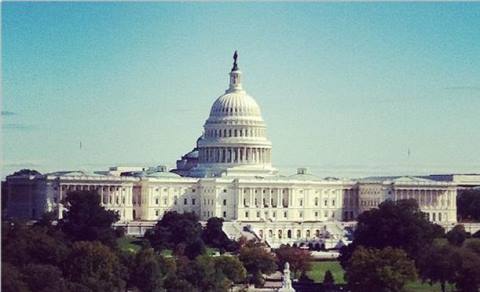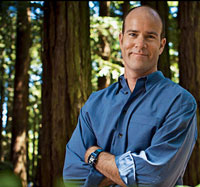The Climate Crisis Is a Latino Civil Rights Crisis
UnidosUS and Mi Familia Vota recently released the most expansive poll of Latino voters in 2023, and among the findings is that nearly half (48%) of Latino voters now say that climate change is a serious problem that affects people’s lives.
By Natalie Knight Griffin, Health Policy Intern
In the United States, wildfires in the West, tornadoes in the Midwest, and hurricanes on the coasts have destroyed countless families’ homes and businesses.
Keep up with the latest from UnidosUS
Sign up for the weekly UnidosUS Action Network newsletter delivered every Thursday.
Since 2008, about 265 million people worldwide have been forced to leave their homes due to the devastation caused by increasing natural disasters, such as hurricanes, wildfires, drought, and flooding. Climate change endangers people all over the world from all walks of life, but black, brown, and Indigenous people are among those harmed first and most severely. The climate crisis is a civil rights crisis, both in the U.S. and across the globe.
Latino communities are disproportionately harmed by climate change.
In the U.S., communities of color face heightened risks and exposure to climate-related events, like extreme heat, with Latinos among the groups most likely to be harmed. According to 2021 data from the Pew Research Center, 56% of U.S. Hispanics live in areas that have experienced an extreme weather event within the last year.
The socio-economic hardships of growing up in poverty in the United States now include the dangerous and sometimes deadly effects of climate change. Low-income communities of color experience disproportionate levels of methane and gas emissions, extreme heat, and natural disasters. According to the Environmental Protection Agency (EPA), Latinos are 43% more likely than non-Hispanic whites to live in areas where extreme temperatures are expected to cause future reductions in labor hours.
Latinos are overrepresented in many work sectors that are most impacted by climate, including agriculture, tourism, and labor. An estimated 83% of farmworkers in the U.S. are Latino. The close relationship between farmworkers and climate has presented a significant threat to the health of many Latinos and their livelihoods. As global temperatures rise, outdoor workers, who are 35 times more likely than indoor workers to die from heat-related illness, will face heightened risks of heat-exposure-related illnesses, like heat stroke and heat exhaustion. Farmworkers and others who labor outdoors are among the unseen victims of climate collapse, bearing the burden of scorching heat and suffocating injustice.
Heat is not the only climate-induced threat to Latinos. During 2017’s Hurricane Harvey, an extreme weather event that climate change made particularly severe, Latino families lived in 48% of the properties that flooded during the hurricane. In another example, oil and gas pollution endangers Latino community health because many Latinos have little choice but to live near the sources of such pollution. Nearly two million Latinos live within a half-mile radius of existing oil and gas facilities, with this number growing each year.
Many Latinos worry about the threat of climate change.
Polls and studies show that Latinos are increasingly aware of the threat that climate change poses to their livelihood and health. In fact, 71% of Hispanic adults believe climate change impacts their local community, and 81% describe global climate change as a top personal concern. According to our recently released 2023 poll of Latino voters, nearly 10% of the respondents named it as the top concern that elected officials needed to address.
Furthermore, many social and economic issues impacting the Latino community in the U.S. now intersect with the goals of transforming the economy and labor force into one that is energy and climate resilient. Major recently passed Congressional legislation is a case point, creating important opportunities for the Latino community.
The Inflation Reduction Act made historic investments to combat climate change and to shield Hispanic and other historically disadvantaged communities from danger.
The Inflation Reduction Act (IRA), signed into law in August 2022, made the largest investments in combating climate change in American history. The legislation also made groundbreaking investments in environmental justice, using two basic strategies.
The law provides low-income and working-class people with financial assistance they can use to reduce their consumption of fossil fuels and to transition to more climate-friendly energy sources. This financial assistance includes $4.5 billion in grants to states to electrify low-income and middle-income housing. Additionally, the Inflation Reduction provides grants to fund the conversion of gas to electric ovens and stoves, offers tax credits to help low- and middle-income families afford electric vehicles, and other measures. The law allows up to a 30% tax credit for home energy audits to help working-class families take full advantage of the energy efficient home credit, which the law also extends through 2032.
The plan offers support to low-income communities to protect their members against whatever climate disaster strikes, notwithstanding the country’s shift to more sustainable energy sources. This initiative includes subsidies for installing air conditioning systems that protect families from dangerous heat waves. For rural communities, this new law provides funding to the United States Department of Agriculture (USDA) for conservation programs and the generation and use of renewable energy. Under the Rural Energy for America Program, the IRA funding helps farmers who operate small businesses for renewable energy technologies. The law also allows new resources to the Federal Emergency Management Agency for low-carbon building materials that they can use for disaster relief. The IRA funds the Council on Environmental Quality (CEQ) to make mapping and screening tools available to community-based organizations to improve community engagement in debates over protecting people from climate disasters. Regarding public education, the law provides funding for schools in low-income communities for educational materials on environmental issues and improved building design.
The Inflation Reduction Act’s historic investments in combating climate change and protecting vulnerable communities are a crucial step forward. However, the true impact of these measures will depend on their effective implementation. Ensuring that Latino and other historically disadvantaged communities benefit fully from these programs will require concerted efforts from the Biden administration, federal agencies, state governments, and other stakeholders.
The Biden administration must act boldly for Latinos to benefit fully from the Inflation Reduction Act.
For Latinos to benefit equally from the plan, the administration must deploy the full range of tools needed to maximize Hispanic families’ enrollment into any need-based benefit program. This measure includes using culturally competent and linguistically accessible methods of outreach and public education. Further, it entails making all application materials as simple as possible, produced in both English and Spanish, and contracting with trusted community sources of assistance to help families take advantage of assistance for which they qualify. It also includes efforts to minimize administrative burdens required to obtain assistance, burdens that take a particularly heavy toll on many Latinos and members of other historically marginalized communities.
The administration must set strong benchmarks for state performance that protect Latinos and members of other historically disadvantaged communities. Many Inflation Reduction Act grants and other funding streams run through states, which make the ultimate decisions about how resources will be divided. The administration needs to set clear criteria to guide such decision-making so that Latinos and other historically marginalized people do not lose out. The administration should also warn states that any practice that has the effect of limiting Latino families or communities’ access to Inflation Reduction Act resources could potentially violate Title VI of the Civil Rights Act of 1964. Regulations under this core civil rights law do not allow any recipient of federal funds, including a state, to “directly or through contractual or other arrangements, utilize criteria or methods of administration which have … the effect of defeating or substantially impairing accomplishment of the objectives of the program as respect individuals of a particular race, color, or national origin.”
At the same time, the federal government should empower states to tailor grant distribution based on their specific demographic and economic challenges. By allowing state-specific, targeted approaches, administration policy can help states effectively address the needs of their marginalized communities, which often vary greatly.
The administration should structure relevant procurement and requests for proposals so that trusted organizations in the Latino community have fair and reasonable access to IRA resources vital to the community. The IRA itself is, like most federal laws, convoluted and dense, creating challenges for community-based organizations to understand the opportunities created by the legislation. Typical federal practices for disseminating funds also have the effect of privileging well-funded organizations skilled at federal grant writing over organizations deeply grounded in their communities. This situation can be true even when the latter disadvantaged groups are equipped to perform well but need more resources to hire vendors to track and take full advantage of federal funding opportunities. The Biden-Harris Administration has a responsibility to simplify application procedures and reduce bureaucratic hurdles for community groups. At its current rate, the application process may require over a month just to register.
The administration should make its proposal solicitation process more accessible to Latino community organizations by simplifying application instructions and eligibility criteria as well as using flexible deadlines. The criteria for awards should prioritize projects that directly benefit marginalized communities by supporting organizations with a proven track record of effectively aiding such communities.
Organizations rooted in Hispanic communities should engage, as best they can, to prevent their communities from being left behind as the IRA transitions America to a more sustainable future.
These issues are complex, and while some Latino advocates have fought long and hard for environmental justice in their communities, many other leaders and organizations are just beginning to grapple with the issues involved. Hispanics have a large stake in how the new laws and once-in-a-generation investments are distributed to impacted communities.
Community organizations should track and participate in emerging federal opportunities, but they should also focus on state mechanisms for resource distribution.
Ultimately, it is vital for federal and state policymakers to actively engage representatives of Latino and other historically marginalized communities so they can help shape the policies, practices, and resource distribution that will have a profound effect on these communities for decades to come. Community organizations need not only a seat at the table but also a compelling voice in the conversation. For these reasons, organizations like Green Latinos and Raza Development Fund are stepping up efforts in the environmental field. Further, nearly three out of four UnidosUS Affiliates are in sites designated as environmentally disadvantaged communities and qualify for targeted funding under the Greenhouse Gas Reduction Fund (GGRF). Many of these organizations administer healthcare, education, and housing programs related to climate resiliency. To help ensure equitable distribution of investment in these organizations and communities, UnidosUS is working in partnership with these organizations and is helping to set up a new civil rights-focused climate coalition with our partners, the National Urban League and National Capacity. Future blogs and commentaries will share more information about the issues and work unfolding to combat the effects of climate change in Latino communities.


